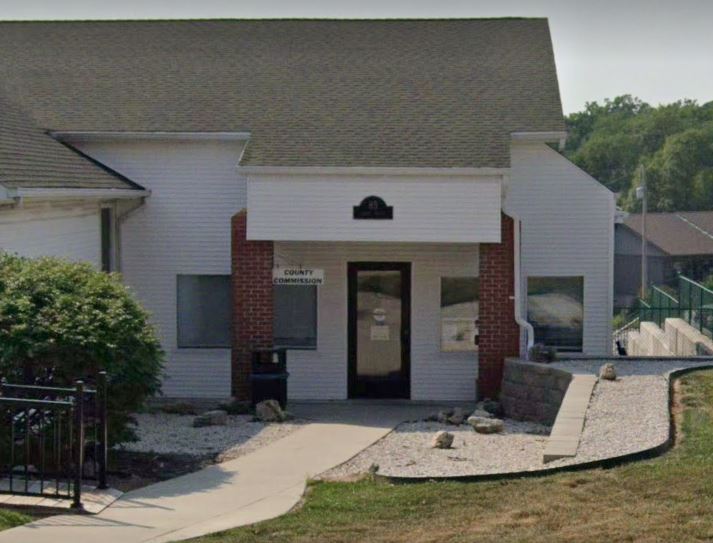Lake Regional Shines Spotlight On American Heart Month
Calling it the number-1 killer of Americans, health officials around the lake area and beyond are putting out the word that all next month is designated as American Heart Month.
“The month of February is really out there for the American Heart Association to really get the awareness onto heart disease” says Jody Corpe, exercise physiologist and manager of cardiopulmonary rehab for the Lake Regional Health System.
Corpe says there are several signs that something may be wrong with your ticker which should get checked out as soon as possible and not ignored…especially for women…“A lot of times women go and make excuses for a little twinge in their upper back…or their neck is tight…or their jaw is tight…arms are tight. Women have a good way of making excuses for those things.”
In an effort to raise more awareness about Heart Month, this Friday is National Wear Red Day.
You should also contact your local health provider for more information if you have concerns about heart disease.
***Read more***
February is American Heart Month, and Lake Regional is raising awareness about heart disease, which is the leading cause of death in the United States.
“Your overall health depends on your heart health, so you want to make sure it gets the best care possible,” said Willie Maxwell, R.N., Lake Regional Cath Lab manager. “Heart month is a time to learn what you can do to keep your heart in top condition. It’s also a time to learn how to handle a heart emergency.”
As a Level II STEMI Center, Lake Regional is equipped to provide timely, definitive heart attack care 24 hours a day, seven days a week. Following are a few of the most common heart-related issues seen at Lake Regional.
Heart attack. This heart emergency happens when there’s a sudden blockage in blood flow to heart muscle. Symptoms include tightness or pain in the chest, back or arms. Other signs include fatigue, lightheadedness and abnormal pulse.
“If you suspect you or someone with you might be having a heart attack, seek care immediately,” Maxwell said. “You need quick treatment to save heart muscle. At Lake Regional, we are proud to have very quick treatment times. Our average door-to-balloon time — or the time that passes from a patient arriving to us restoring blood flow to the heart — is just 41 minutes. That’s faster than 90 percent of hospitals in America.”
Heart failure. This chronic condition often results from coronary artery disease, high blood pressure or diabetes. It happens when the heart either cannot fill with enough blood or cannot pump blood well enough to the rest of the body. Treatment varies depending on severity but can include lifestyle changes, surgery and early intervention.
Cardiomyopathy. This chronic heart muscle disease can be either hereditary or acquired and comes in multiple forms, including dilated, hypertrophic and restrictive cardiomyopathy. As the disease advances, breathlessness, swelling and bloat often occur. Medications and surgery can help control the condition.
Lake Regional’s experienced team is able to treat all of the above conditions as well as many other heart diseases and disorders, including stroke, pericarditis, arrhythmia, atherosclerosis, valve problems and peripheral artery disease (PAD).
Surgery and Treatments
The type of treatment received for heart disease depends on the cause and severity. Heart disease can sometimes be treated through lifestyle changes or medication, but surgery might be required depending on the extent of damage to the heart.
“When a heart issue requires surgery, the community can count on Lake Regional’s heart care team,” Maxwell said. “Lake Regional offers a variety of cardiac surgeries including angiography; bypass surgery; heart valve repair and replacement; peripheral stenting; and more.”
Cardiac catheterization lab procedures examine if a patient has disease of the heart muscle, valves or coronary arteries.
“Lake Regional’s state-of-the-art catheterization lab is equipped with the industry’s best imaging technology, which helps guide our minimally invasive tests and life-saving procedures,” Maxwell said. “Every year, Lake Regional treats over 1,500 patients in the cardiac cath lab.”
In addition, Lake Regional provides cardiac rehabilitation, a medically supervised program for people who have experienced a heart event, surgery or procedure. Lake Regional’s accredited Cardiac Rehabilitation Program provides patients a continuum of care that helps them more quickly recover from cardiac problems. The cardiac rehab program available at three locations: Lake Regional Hospital, Lake Regional Clinic – Eldon and Lake Regional Clinic – Laurie.
Learn more about heart conditions and Lake Regional’s heart care team at lakeregional.com/heartcare.


